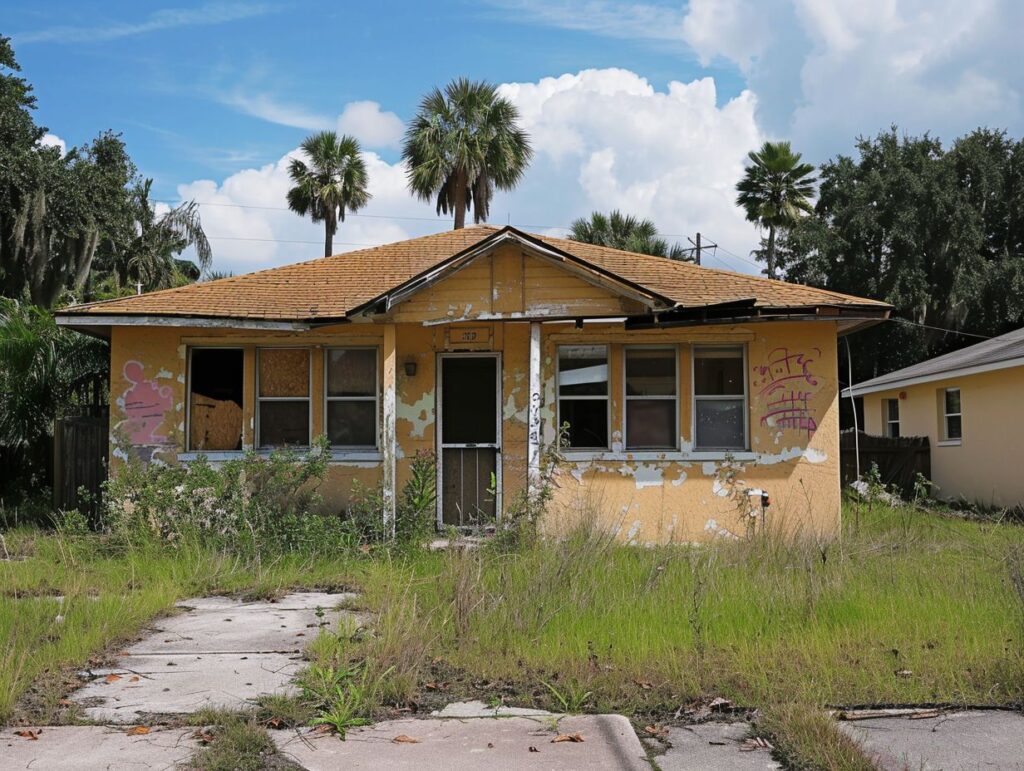Are you considering renting a property in Florida? Before signing a lease agreement, it’s essential to understand what should be included to protect both tenants and landlords.
From the names of parties involved to rules and regulations, there are key elements that must be addressed. There are different types of lease agreements to consider, such as fixed-term or month-to-month leases. Understanding the legal requirements in Florida, including fair housing laws and disclosure obligations, is crucial.
In the event of a dispute, knowing how to handle it through communication, mediation, or eviction proceedings is key. Let’s explore all these important aspects of lease agreements in Florida.
Key Takeaways:

- Include all necessary information in the lease agreement, such as names, property details, lease terms, deposits, maintenance, and rules.
- Know the different types of lease agreements in Florida, including fixed-term, month-to-month, sublease, and roommate agreements.
- Ensure compliance with state and federal laws, fair housing laws, disclosure of lead-based paint, and disclosures for mobile home tenants.
How to Handle Lease Agreement Disputes in Florida?
Dealing with lease agreement disputes in Florida necessitates a comprehensive grasp of the legal remedies accessible to both tenants and landlords, which span from communication and negotiation to mediation and, if needed, eviction procedures.
1. Communication and Negotiation
Efficient communication and negotiation are typically the initial steps taken to resolve lease agreement disputes between tenants and landlords, with the goal of finding a mutually acceptable solution.
Clear and open communication can assist both parties in articulating their concerns, interests, and expectations. By actively listening and addressing each other’s needs, tenants and landlords can collaborate to find a middle ground.
For example, if a tenant believes that their security deposit refund is being withheld unfairly, they can arrange a meeting with the landlord to discuss the matter and present any relevant documentation. Through transparent communication, the involved parties can comprehend each other’s viewpoints and negotiate a just resolution to the conflict.
2. Mediation
Mediation is a potentially effective method for resolving lease agreement disputes by involving a neutral third party to assist tenants and landlords in reaching a fair resolution without resorting to court.
During mediation, the mediator facilitates communication between the parties, promotes active listening, and guides them towards finding mutually beneficial solutions. This process allows for a more amicable and collaborative approach compared to the adversarial nature of litigation.
The Florida Department of Agriculture and Consumer Services provides mediation services to aid in resolving disputes related to agriculture and consumer rights, offering a cost-effective and efficient alternative to lengthy court battles. Opting for mediation can help parties save time and money, preserve relationships, and work towards a resolution that satisfies both sides.
3. Eviction Proceedings
Eviction proceedings are typically considered a final option for resolving disputes related to lease agreements and must be carried out in strict accordance with Florida Statutes to ensure legal compliance.
In the state of Florida, the eviction process usually commences with the landlord issuing a written notice to the tenant, outlining the grounds for eviction and the specific lease agreement violation. The legally mandated notice period can vary based on the nature of the violation, typically spanning from 3 to 30 days.
Should the tenant fail to comply or respond within the stipulated timeframe, the landlord reserves the right to commence a formal eviction lawsuit in a court of law.
It is essential for both landlords and tenants to seek legal counsel to comprehend their respective rights and obligations throughout the eviction procedure, as failure to adhere to legal mandates can lead to potentially costly repercussions such as financial penalties or the inability to enforce the eviction decree.
What Should Be Included in a Lease Agreement in Florida?
An extensive lease agreement in Florida should incorporate various essential elements to safeguard the interests of both tenants and landlords. This helps establish a legally binding contract that aligns with the Florida Statutes. The crucial components typically include identifying the parties involved and outlining specific conditions related to maintenance, rights, and obligations.
1. Names of Parties Involved
The lease agreement should clearly state the full names of all tenants and landlords involved in the agreement to ensure the legal document’s binding and enforceable nature. This is important because omitting or inaccurately listing a party’s name can lead to confusion or disputes in the future.
In cases where there are multiple tenants or landlords, specifying each individual’s name aids in defining their roles and responsibilities within the agreement. Ambiguities in naming can result in disagreements over obligations, payments, or rights granted by the lease.
By accurately identifying all parties, the lease agreement provides clarity and protection for everyone involved, establishing a solid foundation for a smooth landlord-tenant relationship.
2. Property Description
An inclusive property description is an essential component of a lease agreement, outlining details like the rental property’s address, unit number (if applicable), and any unique features or conditions of the property. This description is valuable for both landlords and tenants, as it establishes clear expectations and helps prevent potential conflicts.
Beyond the basics, a well-crafted property description should cover the physical state of the property, including any existing damages or maintenance requirements. Specific information on amenities, parking arrangements, and included utilities can also be beneficial.
A detailed and precise property description enables both parties to refer to it in case of disputes or misunderstandings, contributing to a more streamlined rental process.
3. Lease Term and Rent Amount
The lease term and rent amount are essential aspects of any lease agreement, defining the length of the lease and the financial commitments of the tenant. In Florida, standard lease durations typically vary from 6 months to a year for residential leases, while commercial leases can extend for longer periods, often spanning several years.
It is crucial that the lease agreement clearly specifies the rent amounts, including the monthly payment schedule and any potential increases over time. This level of clarity helps prevent misunderstandings and ensures that both parties understand their obligations throughout the lease term. Landlords should provide comprehensive information on how and when rent payments are due to maintain a seamless tenancy.
4. Security Deposit and Pet Deposit
The lease agreement should outline the security deposit amount and any pet deposit required, as well as the conditions for their return post lease termination.
In Florida, landlords must adhere to specific regulations concerning security deposits. The maximum security deposit permitted in Florida is two months’ rent for an unfurnished property and three months’ rent for a furnished property.
Landlords are required to place security deposits in a separate interest-bearing account and inform the tenant of the account details within 30 days of receiving the deposit. The landlord must refund the security deposit within 15 to 60 days after the lease concludes, depending on the situation. Deductions from the deposit are only allowed for specific reasons, such as unpaid rent or damages exceeding normal wear and tear.
5. Maintenance and Repairs
The lease agreement should clearly define maintenance and repair responsibilities, outlining the obligations of both the landlord and the tenant. In Florida, landlords typically maintain structural elements like the roof, foundation, and exterior walls, while tenants are usually responsible for daily upkeep such as cleaning, minor repairs, and changing light bulbs.
To effectively document these responsibilities, the lease agreement should include a detailed list of maintenance duties for each party, as well as procedures for reporting and handling maintenance issues. By explicitly defining these responsibilities in the lease, landlords and tenants can reduce confusion and mitigate potential disputes related to maintenance obligations.
6. Utilities and Amenities
The lease agreement should outline the utilities and amenities provided with the rental property. It should specify who is responsible for paying each utility and indicate the amenities included.
It is important to have clarity in determining the responsible party for utilities like water, electricity, gas, and other essential services to prevent misunderstandings between tenants and landlords.
Clearly defining the accountability for amenities such as parking spaces, laundry facilities, gym access, and maintenance services can help establish a smooth rental experience for both parties. This transparency ensures that tenants are aware of what is covered in their rent and helps prevent disputes over any additional costs that may arise during their tenancy.
7. Rules and Regulations
The lease agreement usually contains a section dedicated to rules and regulations that dictate how the tenant should use the rental property, ensuring adherence to both state laws and landlord regulations.
These rules typically address various important aspects aimed at maintaining a peaceful living environment. Commonly included are noise restrictions to ensure tenants respect their neighbors’ quiet enjoyment. Pet policies specify rules regarding the types and quantity of pets allowed on the premises, as well as related responsibilities like cleaning up after them.
The regulations also cover property modifications to prevent unauthorized changes that could affect the property’s structure or violate safety codes. Adhering to these regulations is essential for fostering a positive landlord-tenant relationship based on mutual respect and compliance with agreed-upon terms.
8. Termination and Renewal Clause
The termination and renewal clause in a lease agreement outlines the conditions under which the lease may be terminated or renewed, in accordance with Florida Statutes.
For lease termination in Florida, the legal requirements typically include a notice period that both tenants and landlords must adhere to. Generally, tenants are required to provide a written notice of at least 15 days before moving out, whereas landlords might need to give a longer notice period, typically 30 or 60 days. These notice periods allow both parties to plan accordingly and ensure a smooth transition.
Regarding lease renewal, Florida law may require specific conditions to be met, such as timely payment of rent and compliance with the terms of the original lease. These clauses are designed to protect the interests of both tenants and landlords, providing a clear framework for ending or extending the lease agreement.
9. Late Fees and Penalties
The lease agreement should include a clear outline of the late fees and penalties that will be imposed if the tenant fails to pay rent on time. This ensures that both parties understand the consequences of late payments.
In Florida, landlords are permitted to charge late fees according to state regulations, provided that these fees are specified in the lease agreement. The state does not typically impose a specific limit on the amount of late fees that can be charged, but it is important to establish a reasonable fee structure to avoid potential disagreements.
Clearly defining these terms in the lease agreement helps establish clear expectations and prevent misunderstandings between landlords and tenants. Additionally, it creates a legal framework for addressing late payments, facilitating a smoother resolution process in case any issues arise.
What Are the Different Types of Lease Agreements in Florida?
Florida provides a range of lease agreements to meet the differing needs of tenants and landlords. These agreements serve various purposes and duration requirements, including:
- Fixed-term leases
- Month-to-month leases
- Subleases
- Roommate agreements
1. Fixed-Term Lease Agreement
A fixed-term lease agreement is a contract that specifies a set duration for the tenancy, typically ranging from six months to a year, providing stability for both tenants and landlords.
Tenants benefit from fixed-term leases as they offer a sense of security knowing that they have a place to stay for the specified period without the risk of sudden rent increases. Landlords also find comfort in knowing that their property is occupied for a set timeframe, ensuring consistent rental income.
One drawback of fixed-term leases is the limited flexibility they offer. Tenants may feel restricted by the set duration and could face penalties for breaking the lease early. Common conditions in fixed-term agreements include clauses regarding rent payments, maintenance responsibilities, and rules regarding subletting or pets.
2. Month-to-Month Lease Agreement
Month-to-month lease agreements offer greater flexibility for both tenants and landlords, allowing either party to terminate the lease with proper notice, typically 30 days. This flexibility is particularly beneficial for tenants who may need to relocate for work or personal reasons on short notice.
Month-to-month leases can be advantageous for landlords seeking to adjust rental terms based on market conditions or changes in their circumstances. The notice requirements for terminating a month-to-month lease are usually straightforward, requiring either party to provide written notice at least 30 days in advance.
One potential challenge for landlords is the unpredictability of turnover, as frequent lease terminations can result in periods of vacancy and turnover costs.
3. Sublease Agreement
A sublease agreement permits an existing tenant to rent out the rental property, or a portion of it, to another individual, establishing a secondary tenant-landlord relationship.
This arrangement is generally allowed if the original lease agreement does not explicitly forbid subleasing. The original tenant retains the responsibility of ensuring that the sublessee complies with the terms of the original lease, which include rent payments and property maintenance.
It is crucial for the original tenant to secure approval from the landlord before proceeding with a sublease to prevent a breach of the lease agreement. While subleasing can offer financial relief by splitting rental expenses, there are risks involved, such as potential damage caused by the sublessee and the original tenant being accountable for any lease violations.
4. Roommate Agreement
A roommate agreement is a document utilized in shared rental situations to delineate the responsibilities and expectations of each tenant residing in the property.
It is essential for roommates to distinctly define important details like the division of rent and shared expenses. This agreement should also address rules for common areas, cleaning routines, noise regulations, and visitor guidelines to promote a harmonious atmosphere.
Through documenting these agreements, roommates can reduce the occurrence of misunderstandings and conflicts in the future. Consistent communication and adjusting the agreement as necessary are crucial for dealing with any alterations in circumstances or preferences among roommates.
What Are the Legal Requirements for a Lease Agreement in Florida?
Lease agreements in Florida must comply with specific legal requirements to adhere to both state and federal laws. This ensures the protection of the rights of both tenants and landlords while maintaining the validity of the contract.
1. Compliance with State and Federal Laws
Lease agreements in Florida must adhere to both state laws and federal regulations to ensure their legal validity and enforceability.
It is important for landlords and tenants to understand the specific legal requirements that govern lease agreements. In Florida, some key state laws that impact lease agreements include the Landlord-Tenant Act, which delineates the rights and responsibilities of both parties, as well as the regulations regarding security deposits.
At the federal level, laws like the Fair Housing Act and the Americans with Disabilities Act also have a significant impact on lease agreements. Failure to comply with these laws can lead to serious consequences, such as fines, legal conflicts, and potential eviction proceedings.
2. Fair Housing Laws
Fair housing laws prohibit discrimination in lease agreements, ensuring that all tenants have equal access to rental properties regardless of race, color, national origin, religion, sex, familial status, or disability.
Landlords are legally obligated to abide by these laws and cannot deny housing based on any of the protected characteristics. These laws establish a framework of rights and responsibilities for both landlords and tenants to create a fair and inclusive housing market.
They also provide legal protections for tenants who may experience discrimination, harassment, or unequal treatment in the rental process. By upholding fair housing laws, landlords contribute to creating diverse and equitable communities where everyone can access safe and suitable housing.
3. Disclosure of Lead-Based Paint Hazards
In Florida, lease agreements are required to include a disclosure of any known lead-based paint hazards if the rental property was built before 1978. This regulation aims to protect tenants from potential health risks associated with lead-based paint, commonly used before 1978. Landlords must provide tenants with an EPA-approved informational pamphlet on lead-based paint hazards.
The disclosure must contain information about any existing lead-based paint in the property and its potential risks. Compliance with these regulations is important to ensure the safety and well-being of tenants, as exposure to lead-based paint can result in severe health issues such as developmental delays, neurological damage, and other adverse effects.
4. Required Disclosures for Mobile Home Tenants
Lease agreements with mobile home tenants in Florida are required to contain specific disclosures as outlined in the Florida Statutes to uphold transparency and legal compliance.
These disclosures play a critical role in informing tenants about their rights and obligations. Florida legislation mandates landlords to disclose information regarding mobile home park regulations, utilities, rent payments, and possible fees.
The lease agreements should detail the maintenance duties of both the tenant and the landlord to establish clarity and accountability. By including these disclosures in the lease agreement, tenants are provided with added protection against any potential conflicts or misinterpretations that may occur throughout their tenancy.
Frequently Asked Questions
Can I break my lease agreement in Florida?
It depends on the terms of your lease agreement. Some agreements may have a clause that allows for early termination, but you may be required to pay a fee or find a replacement tenant. It’s important to review your lease carefully before making a decision.
What should I do if my landlord is not fulfilling their obligations under the lease agreement?
You can file a complaint with the Florida Division of Consumer Services or consult with a lawyer for legal advice. It’s important to document any issues and communicate with your landlord in writing to have a record of your attempts to address the problem.
What are the laws regarding security deposits in Florida lease agreements?
In Florida, landlords are required to return security deposits within 15 to 60 days after the lease ends, depending on the circumstances. They must also provide a written explanation for any deductions from the deposit. It’s important to document the condition of the rental unit before moving in and after moving out to ensure a fair return of your deposit.
Can my landlord evict me without a court order?
No, in Florida, landlords must go through the legal process of eviction, which includes filing a complaint and obtaining a court order. It is illegal for landlords to use self-help measures, such as changing the locks or shutting off utilities, to evict a tenant.
Do I have any rights as a tenant in Florida?
Yes, tenants in Florida have certain rights, including the right to a habitable rental unit, the right to privacy, and the right to withhold rent if their landlord fails to make necessary repairs or fulfill their obligations under the lease agreement. It’s important to familiarize yourself with the Florida Landlord Tenant Law to understand your rights.
What happens if I need to make changes to my lease agreement?
If both parties agree to the changes, a written amendment should be made and signed by both the landlord and tenant. It’s important to document any changes to the lease agreement to avoid any misunderstandings or disputes in the future.


























Rate this article:
Average rating 0 / 5. Vote count: 0
No votes so far! Be the first to rate this post.
No Comments yet!